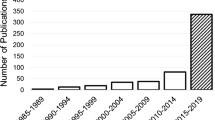Abstract
“Technology” and “Criminal law” are usually considered separate subjects. Artificial intelligence in courts has raised questions about criminal procedural law. Investigations and crime perception have changed due to the digital society. Humans have a duty to maintain the law, but the fast digital shift in people's lives is affecting how they do so. Technology and AI are crucial for the criminal justice system (CJS). In the scientific community, methodology, and approaches, AI is defined. It's usually used to describe something that simulates human cognition with a machine. Advances in neuroimaging, AI, and machine learning have led to the development of brain-reading technologies that could be used for lie detection, brain-computer interfaces, and brain mapping in the near future. Politicians, technicians, and lawyers, among others, must collaborate for the good socio-research of society, particularly in the criminal justice system. In this paper, we review and analyse the literature on the use of brain-reading AI for neuroprotection of violence and rearrest to identify opportunities and challenges in the future use of these techniques in the fields of forensic psychiatry and criminal justice, while taking legal implications and ethical concerns into account. More research on AI neuro-prediction techniques is needed, according to the study, to complete the investigation, and it is still important to understand how they might be employed in the field of forensic psychology.




Similar content being viewed by others
References
Acampora G, Vcriitiello A, Di Nunzio C, Saliva M, Garofano L (2014) Bloodstain pattern analysis. In: Proceedings of the international joint conference on computational intelligence. SCITEPRESS-Science and Technology Publications, Lda Vol 2, pp 211–216.
ANI (2020) Used artificial intelligence to probe 755 cases in Feb 2020 violence: Delhi Police. [Internet] Updated 2021 Mar 11[Cited 2022 Apr 12]. Available from: https://www.aninews.in/news/national/generalnews/used-artificial-intelligence-to-probe-755-cases-infeb-2020-violence-delhi-police20210311234801/
Barabas C, Virza M, Dinakar K, Ito J, Zittrain J (2018) Interventions over predictions: reframing the ethical debate for actuarial risk assessment. In: Proceedings of FAT conference (FAT 2018). ACM, New York, NY, 62–76.
Baraniuk C (2019) The new weapon in the fight against crime - BBC Future [Internet]. Machine Minds. 2019 [cited 2021 Apr 22]. Available from: https://www.bbc.com/future/article/20190228-how-ai-ishelping-to-fight-crime
Brunty J (2023) Validation of forensic tools and methods: A primer for the digital forensics examiner. Wiley Interdiscip Rev Forensic Sci 5(2):e1474
Chinni Katti SK (2018) Artificial intelligence in forensic science. Computer, 46, 707- 727
Conroy MA, Murrie DC (2008) Forensic assessment of violence risk: a guide for risk assessment and risk management. Wiley, Hoboken, p 385
Crescioni AW, Baumeister RF, Ainsworth SE, Ent M, Lambert NM (2016) Subjective correlates and consequences of belief in free will. Philos Psychol 29:41–63
Franke K, Srihari SN (2007) Computational forensics: Towards hybridintelligent crime investigation. In: Third international symposium on information assurance and security (pp 383–386). IEEE
Green M (2021) Human factors in forensic evidence [Internet]. [cited 2021 Apr 22]. Available from: https://www.visualexpert.com/Resources/ forensics.html
Gunning D, Aha D (2019) DARPA’s explainable artificial intelligence (X.A.I.) Program. A.I Magazine 40:44–58. https://doi.org/10.1609/aimag.v40i2.2850
Gutierrez CE, Skibbe H, Nakae K et al (2020) Optimization and validation of diffusion MRI-based fiber tracking with neural tracer data as a reference. Sci Rep 10:21285. https://doi.org/10.1038/s41598-020-78284-4
Haynes JD, Rees G (2006) Neuroimaging: decoding mental states from brain activity in humans. Nat Rev Neurosci 7:523–534
INDIA ai. AI is being used by the UP Police to catch criminals. [Internet]. Updated 2019 Aug16 [Cited 2022 Oct 21]. Available from: https://indiaai.gov.in/casestudy/ai-is-being-used-by-the-up-police-to-catchcriminals
Jadhav EB, Sankhla MS, Kumar R (2020) Artificial intelligence: advancing automation in forensic science & criminal investigation. J Seybold Rep 15(1533):13
Jeong D (2020) Artificial intelligence security threat, crime, and forensics: taxonomy and open issues. IEEE Access 8:184560–184574
Joshi N (2019) The rise of AI in crime prevention and detection [Web log post]. Retrieved July 30, 2020, from https://www.allerin.com/blog/the-rise-of-ai-incrime-prevention-and-detection
Kamdar SR, Pandey A (2011) The scope of artificial intelligence in forensic science. Forensic Audit. 46.
Kok JN, Boers EJ, Kosters WA, Van der Putten P, Poel M (2009) Artificial intelligence: definition, trends, techniques, and cases. Artificial intelligence, 1.
Koutsouleris N, Borgwardt S, Meisenzahl EM, Bottlender R, Möller H-J, Riecher-Rössler A (2011) Disease prediction in the at-risk mental state for psychosis using neuroanatomical biomarkers: results from the FePsy study - PubMed. Schizophr Bull 38(6):1234–1246
Ligthart S (2019) Coercive neuroimaging technologies in criminal law in Europe: exploring the implications for the prohibition of ill-treatment (article 3 ECHR). In: Reins L (ed) Regulating new technologies in uncertain times information technology and law series. Springer, Berlin, pp 83–102
London AJ (2019) Artificial intelligence and black-box medical decisions: accuracy versus explainability. Hast Center Rep 49:15–21. https://doi.org/10.1002/hast.973
Meynen G (2019) Ethical issues to consider before introducing neurotechnological thought apprehension in psychiatry. AJOB Neurosci 10:5–14. https://doi.org/10.1080/21507740.2019.1595772
Mitchell F (2014) The use of Artificial Intelligence in digital forensics: An introduction. Digit Evid Electron Signat Law Rev. https://doi.org/10.14296/deeslr.v7i0.1922
Monahan J, Skeem JL (2014) The evolution of violence risk assessment. CNS Spectr 19(5):419–424
Moses KR, Higgins P, Probhakar S, Swann S, McCabe M (2011) AutomAted Fingerprint identiFicAtion system (AFis). National Institute of Justice, Washington DC, 6–1
Pedreschi D, Giannotti F, Guidotti R, Monreale A, Ruggieri S, Turini F (2019) Meaningful explanations of black box AI decision systems. Proc AAAI Conf Artif Intell 33:9780–9784. https://doi.org/10.1093/schbul/sbr145
Richmond Sarah D, Rees Geraint, Edwards Sarah J. L (eds) (2012) I Know What You’re Thinking: Brain imaging and mental privacy. Oxford University Press, Oxford. https://doi.org/10.1093/acprof:oso/9780199596492.001.0001
Rigano C (2019) Using artificial intelligence to address criminal justice needs. Nat Instit Justice 280:17
Rughani PH (2017) Artificial intelligence based digital forensics framework. Int J Adv Res Comput Sci 8(8):10–14
Scarpazza C, Ferracuti S, Miolla A, Sartori G (2018) The charm of structural neuroimaging in insanity evaluations: guidelines to avoid misinterpretation of the findings. Transl Psychiatry 8:227. https://doi.org/10.1038/s41398-018-0274-8
Sharma S (2018) This AI tool will help Maharashtra Police predict crime. [Internet] Updated 2018 Aug 27[Cited 2022 Apr 26]. Available from: https://www.techcircle.in/2018/08/27/this-ai-tool-willhelp-maharashtra-police-predict-crime
Shats K, Brindley T, Giordano J (2016) Don’t ask a neuroscientist about phases of the moon: applying appropriate evidence law to the use of neuroscience in the courtroom. Camb Q Healthc Ethics 25:712–725. https://doi.org/10.1017/S0963180116000438
Silenkova DS, Zatsepina MI (2023) Neural network ChatGPT: a helping hand or a new competitor?.
Srivastava N (2014) Lie detection system using artificial neural network. J Global Res Comput Sci 5(8):9–13
Stower H (2019) Translating thoughts into speech. Nat Med 25:877. https://doi.org/10.1038/s41591-019-0488-1
Takano H, Momota Y, Ozaki T, Shiozawa S, Terada K (2019) Per-sonal Identification from dental findings using AI and image analysis against great disaster in Japan. Forensic Leg Investig Sci 5:041
Tang J, LeBel A, Jain S et al (2023) Semantic reconstruction of continuous language from non-invasive brain recordings. Nat Neurosci 26:858–866. https://doi.org/10.1038/s41593-023-01304-9
Tortora L, Meynen G, Bijlsma J, Tronci E, Ferracuti S (2020) Neuroprediction and AI in forensic psychiatry and criminal justice: a Neurolaw perspective. Front Psychol. https://doi.org/10.3389/fpsyg.2020.00220
Tournas NL (2021) If Police Have Devices That Can Read Your Mind, How Does the Fifth Amendment Fit In? https://slate.com/technology/2021/05/brain-computer-interface-mind-reading-fifth-amendment.html [Internet] Updated 2021 May 28 [Cited 2023 June 6]
Turvey BE (2018) Criminal profiling: evidence, experts, and miscarriages of justice. In: Koen WJ, Bowers CM, editors. The Psychology and Sociology of Wrongful Convictions [Internet]. San Diego: Academic Press; 2018 [cited 2021 Apr 22]. p. 1–43. Available from: https://www.sciencedirect. com/science/article/pii/B9780128026557000010
Weld SD, Bansal G (2019) The challenge of crafting intelligible intelligence. Commun ACM 62:70–79. https://doi.org/10.1145/3282486
Acknowledgements
I would like to thank my research supervisor & my co-author Prof. (Dr.) Aqueeda Khan, Professor, Amity Law School, Amity University, Noida, INDIA for being there at every stage of my research and helping me out at each step. The door of her office is always open whenever I ran into a trouble spot or had a question about my research or writing. She consistently allowed this research work to be my own but steered me in the right direction whenever she thought I needed it. Lastly, I am immensely grateful to the Editor of the journal for providing me this oppurtunity, my parents, and specially my friend i.e. Dr. Kavita Mittal, Associate Professor, Computer science, Jagannath University, NCR for helping me understand the technical part of the study and last but not the least my affiliated university for giving me the support and ideas which were helpful in channelizing my thoughts in the best possible manner.
Funding
The author has no relevant financial or non-financial interest to disclose.
Author information
Authors and Affiliations
Corresponding author
Ethics declarations
Conflict of interest
The author has no competing interests to declare that are relevant to the content of this article.
Human and animals rights
No human participants and animals were involved in the research article.
Informed consent
No Consent form needed for the author to do the research work as there were no involvement of human Participants or subject matter.
Additional information
Publisher's Note
Springer Nature remains neutral with regard to jurisdictional claims in published maps and institutional affiliations.
Rights and permissions
Springer Nature or its licensor (e.g. a society or other partner) holds exclusive rights to this article under a publishing agreement with the author(s) or other rightsholder(s); author self-archiving of the accepted manuscript version of this article is solely governed by the terms of such publishing agreement and applicable law.
About this article
Cite this article
Bhattacharya, R., Khan, A. Artificial intelligence in forensic psychiatry: admissibility and relevance before courts. Int J Syst Assur Eng Manag (2023). https://doi.org/10.1007/s13198-023-02111-y
Received:
Revised:
Accepted:
Published:
DOI: https://doi.org/10.1007/s13198-023-02111-y




